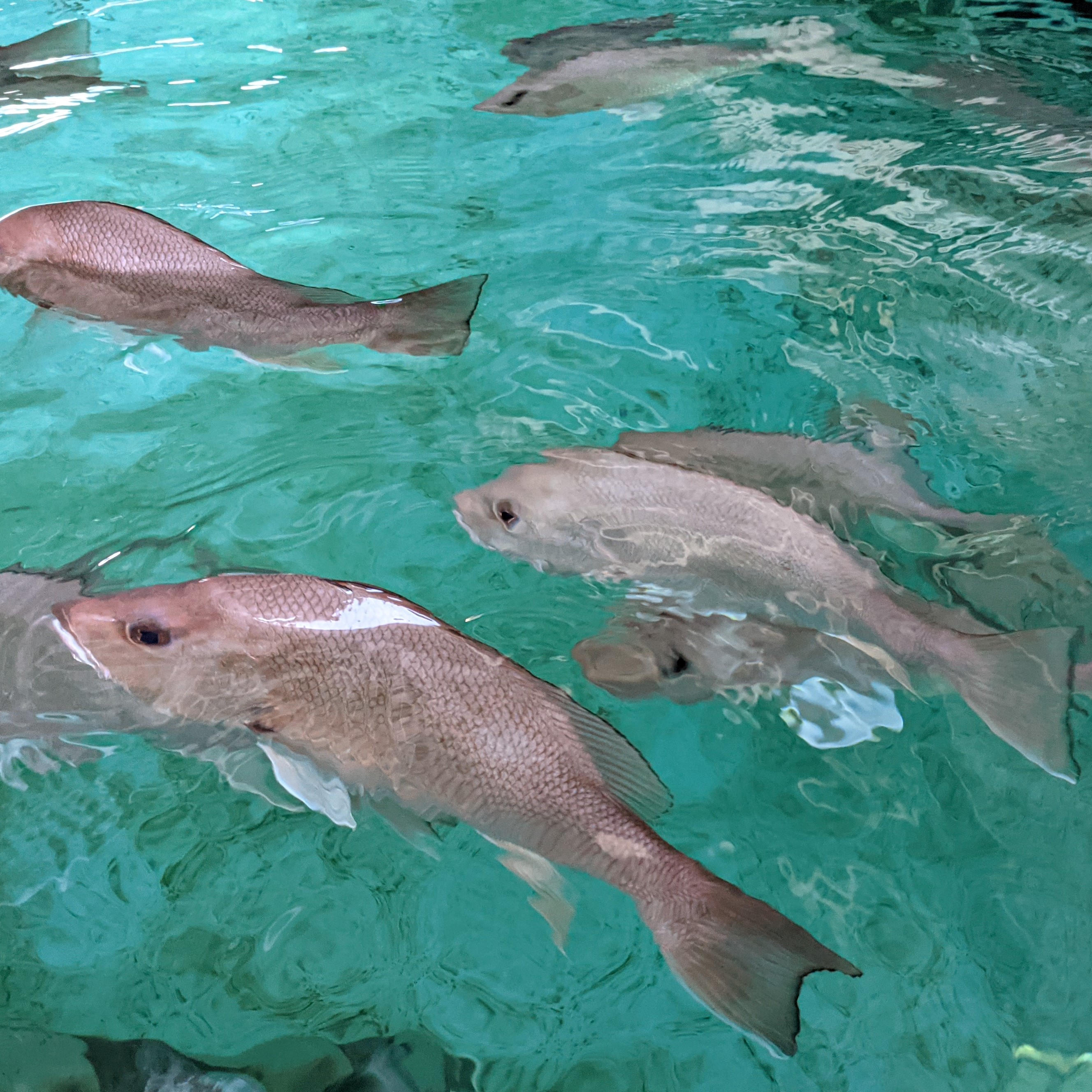 The Whitney Laboratory for Marine Bioscience
The Whitney Laboratory for Marine Bioscience

Congratulations to Dr. Leonardo Ibarra-Castro who recently published a paper titled "Effect of salinity on growth, survival, and serum osmolality of red snapper, Lutjanus campechanus" in Fish Physiology and Biochemistry. Fish used during the experiment were sourced from wild brood-stock spawned at the University of Florida and grown at Whitney Laboratory.
Three trials were conducted to evaluate the performances of red snapper, Lutjanus campechanus, in low salinities. The median lethal concentration (96 h LC50) of salinity was determined by trimmed Spearman-Karber method using survival data of fish (18.9 ± 0.2 g) collected after 96 h from acclimation to 2, 4, 8, and 32 ppt salinities in 800 L tanks (n = 3), while the serum osmolality of fish (74.1 ± 3.9 g) was determined after 48 h from acclimation to 6, 8, 16, 24, and 32 ppt salinities in 150 L tanks (n = 3). The growth trial was conducted for 6 weeks in 800 L tanks to determine the growth and survival of fish (18.8 ± 0.2 g) at 8 ppt salinity compared to the control (32 ppt salinity). At the conclusion, the isosmotic point of fish was estimated as 357.2 mmol/kg (correspond to 11.0 ppt salinity), while the 96 h LC50 was estimated as 5.65 ppt salinity. No significant differences were noted for survival and FCR of fish reared in 8 and 32 ppt salinities. However, growth was significantly lower in fish reared in 8 ppt salinity compared to the fish reared in 32 ppt salinity. The reduced growth could be, at least partially, due to the increased osmoregulatory energy expenditure at lower salinities.